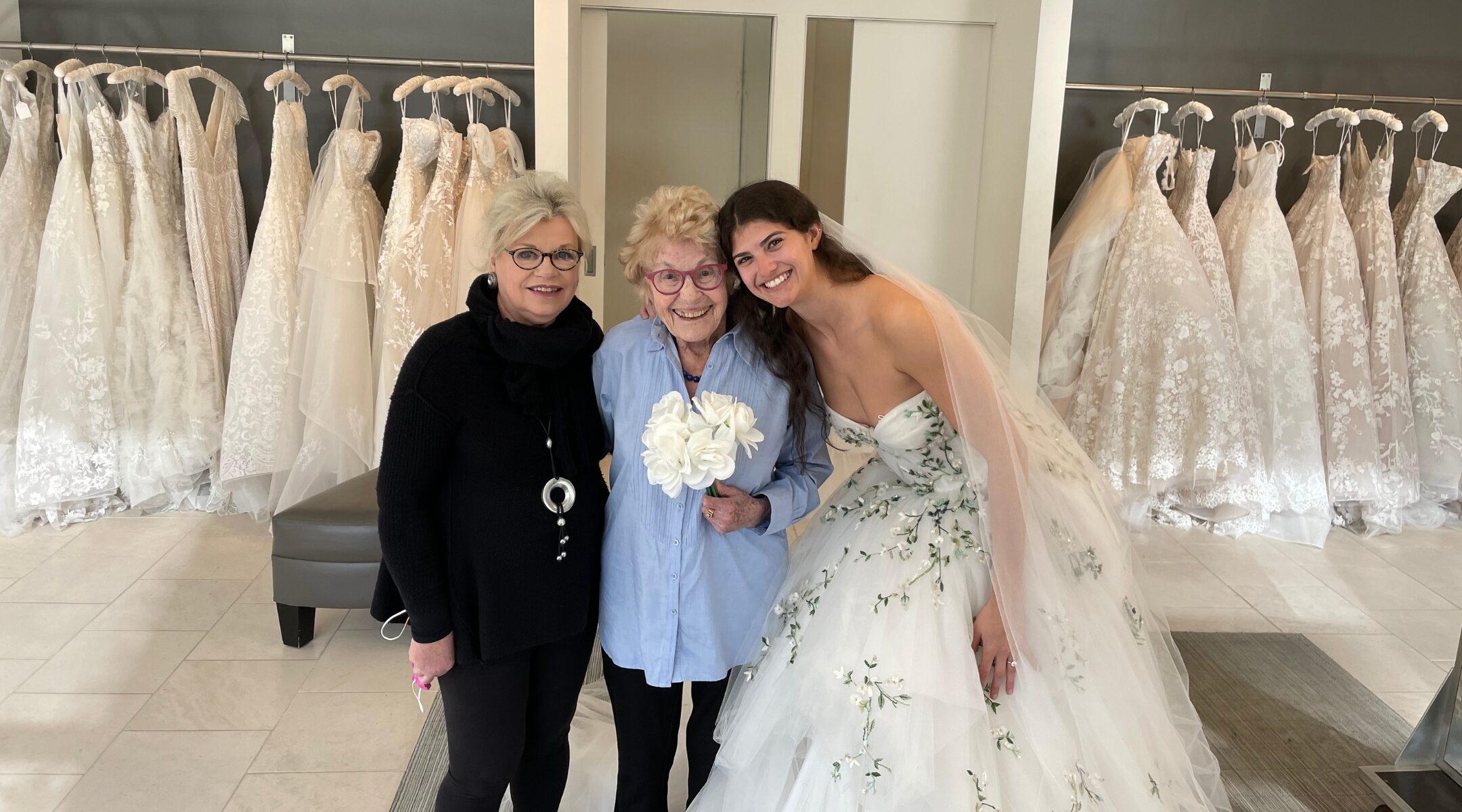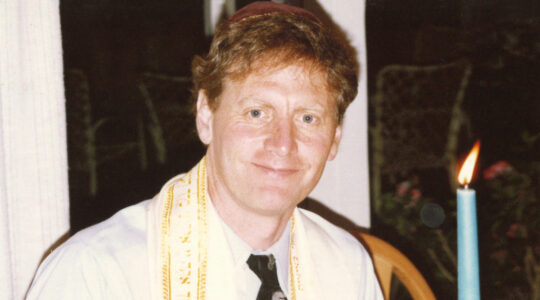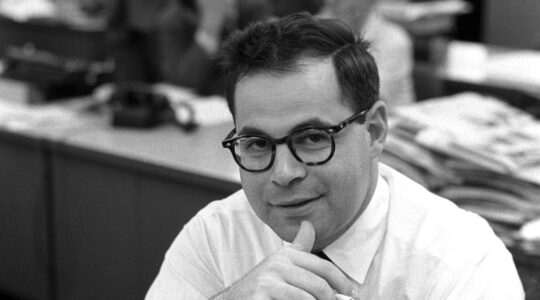(JTA) — Before “Say Yes to the Dress” brought Kleinfeld Bridal to the attention of more than 1.5 million households across America every week, a Holocaust survivor named Hedda Kleinfeld revolutionized the bridal industry, bringing it to life with European designer gowns.
The iconic bridal store, which today boasts about 200 employees, began as an offshoot of Kleinfeld’s father Isidor’s Viennese fur business. Starting in the late 1960s and for the next several decades, Hedda ran Kleinfeld Bridal with her husband Jack Schachter, a talented fur cutter employed by her father.
Nicknamed “Miss Hedda,” Kleinfeld’s foresight to shift the family business away from fur and simple special occasion wear to exclusively carrying wedding gowns transformed the small Bay Ridge, Brooklyn storefront into a multi-million dollar empire.
“She really built Kleinfeld not only as an iconic name but she left an incredible mark on the whole industry with her vision,” Mara Urshel, one of the current co-owners of Kleinfeld, told WWD.
Hedda Kleinfeld Schachter died in Manhattan on March 29. She was 99.
Hedda Kleinfeld was born in Vienna in 1924 to an upper-middle class secular Jewish family. She had a younger sister, Liane. After her father was released from the Dachau concentration camp, where he had been imprisoned for trying to cross the border into Belgium with his brother, the family decided to emigrate, initially with fake visas meant to secure passage to Shanghai. But those papers came in too late, so the family headed to Havana, Cuba, where Hedda and Liane spent their teenage years.
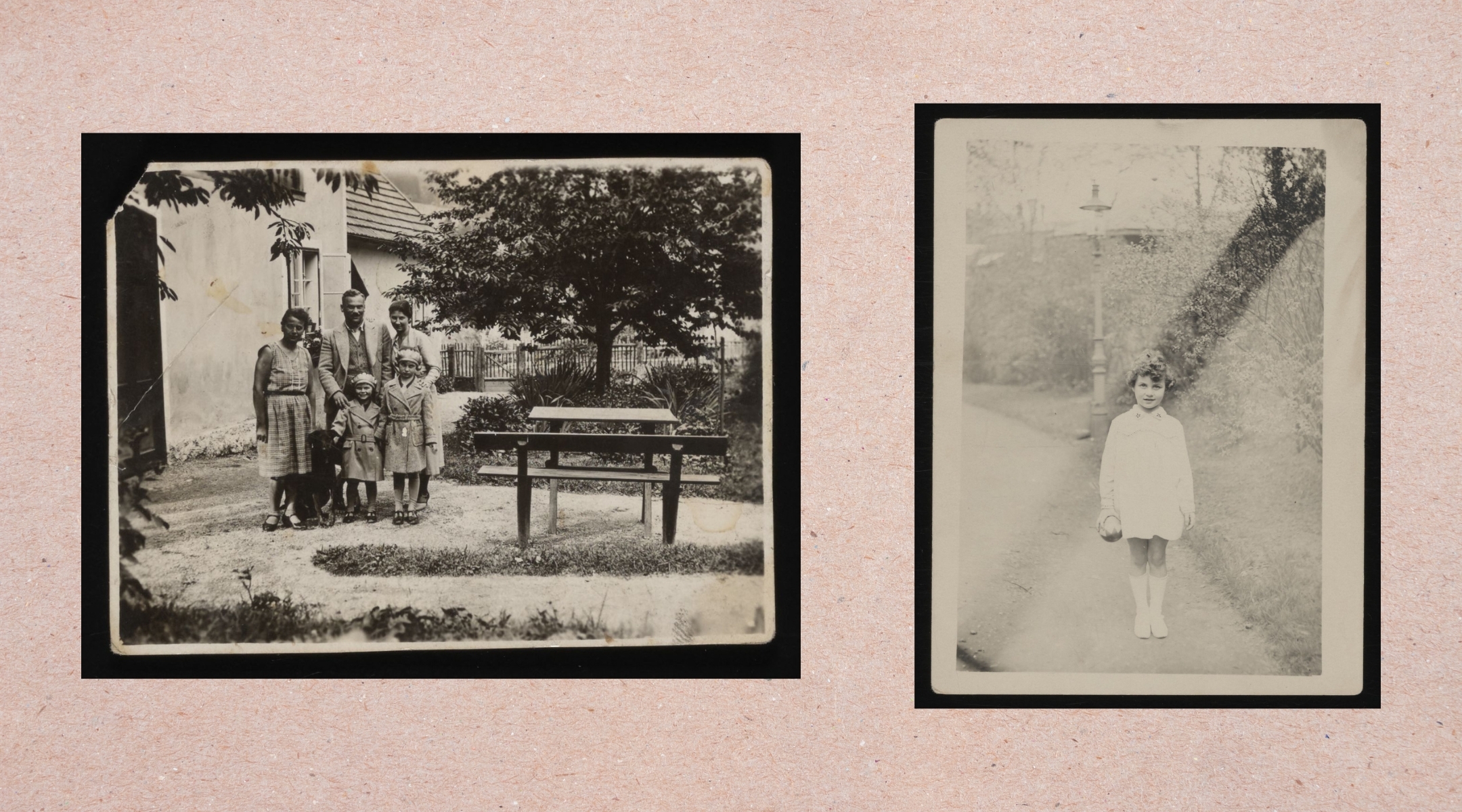
Family photos of the Kleinfeld family in Vienna. In the group photo, Hedda is seen in front at right, with, from left, her mother Regina, her father Isidor, her sister Liane and their nanny. (Courtesy United States Holocaust Memorial Museum/Design by Jackie Hajdenberg)
That’s where the teenage boys of her youth flirted with her and taught her how to dance — a skill she brought with her all the way to Central Park in 2018 when, on the way to a Park Conservancy gala as her granddaughter’s guest, she danced to a local band playing under the shade of the iconic Wisteria Walk, her granddaughter Ilana Schachter recalled.
Though those early memories of Vienna and her escape to Havana shaped much of her life, she never spoke about them much, even with her family.
“She really tried to suppress those memories and box them up and say that was a past life,” Schachter told the Jewish Telegraphic Agency. “She did not share a lot of experiences from that time period, but she did have happy memories of being a teenager in Havana, which I can only imagine was quite a trip.”
About 10 years ago, Schachter and her grandmother visited Havana and the places of Kleinfeld’s teenage years, including the home she once lived in and the town square where she used to dance.
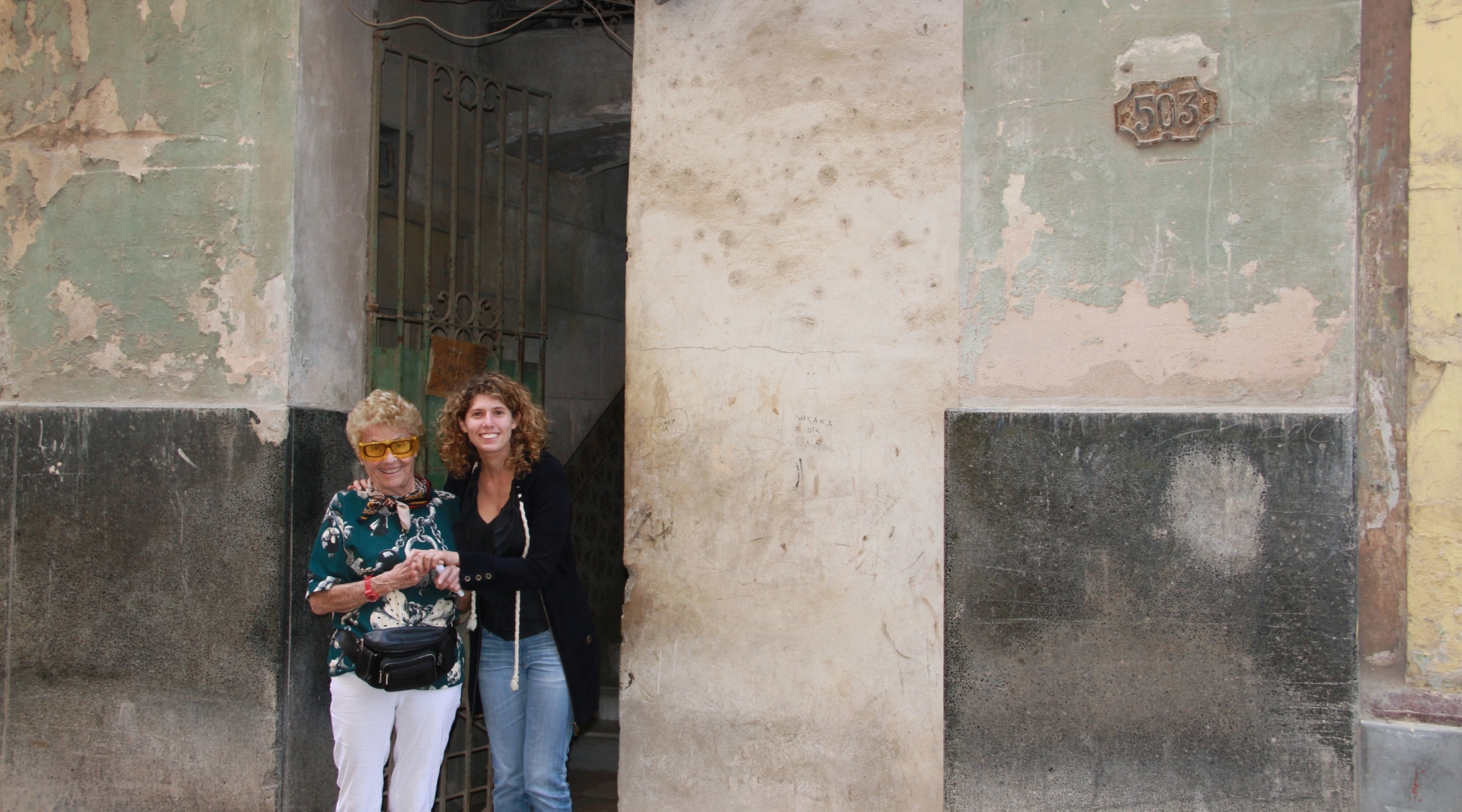
Hedda Kleinfeld Schachter and granddaughter Ilana Schachter visit Hedda’s teenage home in Havana, Cuba. (Courtesy Ilana Schachter)
It’s fitting, then, that her grandmother chose a career centered on weddings.
“I think she appreciated being a part of an industry that was about celebration,” Schachter said.
Beginning in the 1990s, the Kleinfeld company changed hands a few times, according to a company history, and in 2004 construction began on a 35,000-square-foot store on West 20th St. That’s the location frequently featured in the popular TLC show “Say Yes to the Dress” — in which experts help brides find their perfect gown. The show brought the store’s name into millions of homes. But one home that it never made its way into was that of Hedda Kleinfeld.
“She never saw one episode,” Schachter recalled while laughing. “She had no interest. But she wasn’t bothered by it.”
Another “never” that Schachter says her grandmother couldn’t quite get into, despite being quite computer savvy (she was an early adopter of AOL Instant Messenger), was online shopping.
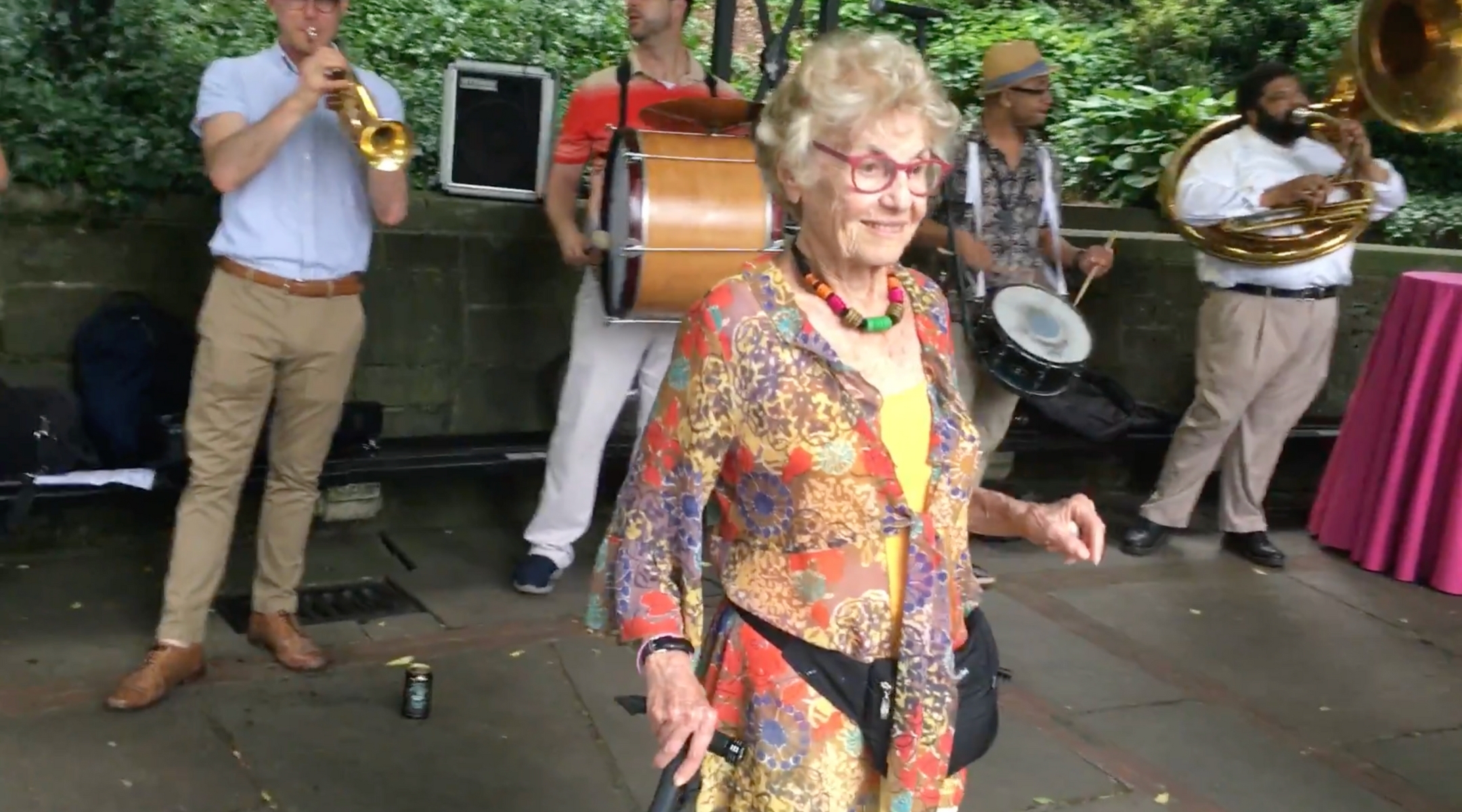
Hedda Kleinfeld Schachter dances under the shade of the Wisteria Walk in New York’s Central Park in 2018. (Courtesy Ilana Schachter)
“Online shopping was never going to happen for her,” she explained. “You bought things in the store, you felt them in your hands, you assessed the quality and you had to see what it looked like on your body. And then imagine buying something and not putting it on your body.”
Clothing was “sacred” to Kleinfeld.
“There was a sacred act in designing clothing and wearing clothing and honoring the clothing as you wore it,” Schachter said. “And she brought that into her work but also that’s just the way she saw the world.”
Kleinfeld’s husband Jack died in 2008. She is survived by their sons, Ronald and Robert.
JTA has documented Jewish history in real-time for over a century. Keep our journalism strong by joining us in supporting independent, award-winning reporting.
